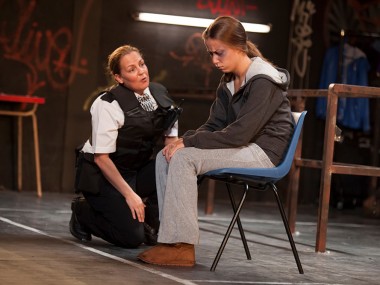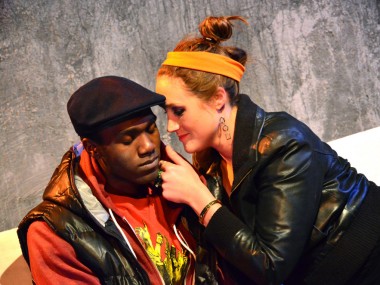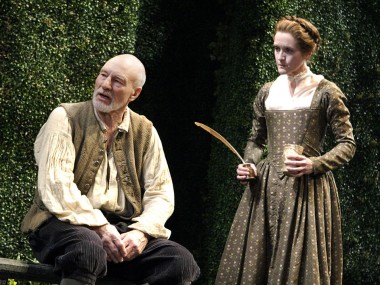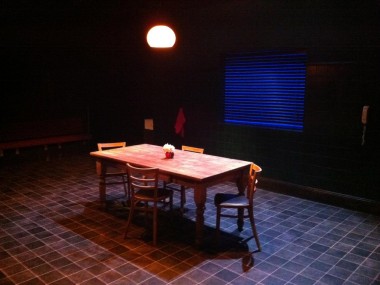Wildefire, Hampstead Theatre
Wednesday 12th November 2014
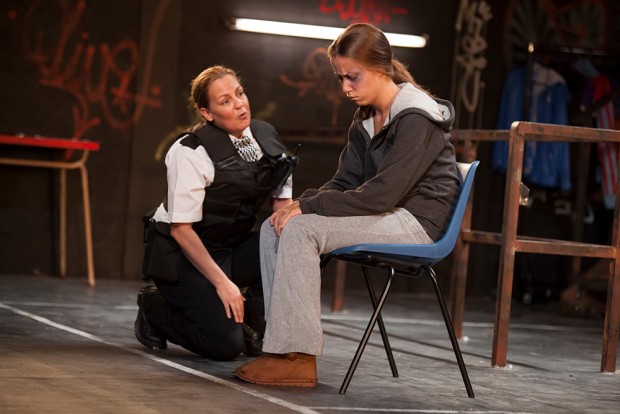
This venue’s current programming is devoted to examining the state of Britain’s public services, with a revival of Nina Raine’s Tiger Country, about the NHS, coming next month and, playing now, Roy Williams’s Wildefire, about the police. This play about cops and corruption stars Lorraine Stanley, whose “previous” includes films such as Gangster Number One, He Kills Coppers and The Hooligan Factory. She would also like us to take into account her stints in Waking the Dead and Trial and Retribution.
In this epic coming-of-age story Stanley plays Gail Wilde — nicknamed Wildefire because of her temper — who is a young cop just starting her career. She arrives at a South London police station naively determined to do the right thing. She follows the rules, spends a lot of time trying to persuade Kristal, a victim of domestic violence, to make an official complaint, and generally wants to make the world a better place. But when she teams up with Spence, a more experienced cop, he initiates her into the realities of policing: violent assault, payment of grasses — and other unlawful acts.
After one particularly vicious incident, Gail’s life begins to fall apart. She drinks too much, she starts popping pills, and she neglects her home life. As she descends into a hellish underworld, society itself seems to implode. Riots erupt. Her personal darkness is reflected in society’s breakdown. Her family collapses. It’s grim and depressing, and provocative above all because of its vision of cops as victims. At one point, a dying police officer is compared to Jesus.
As always, Williams’s dialogues can be fast ’n’ furious, demotic and pulsing with the barely suppressed hilarity of people — like these cops and gang members — who are dancing on the edge. His presentation of morality — at one point, Gail has to choose between right and wrong — is crude, but clear. And this clarity makes it powerful. But Williams’s aim of showing the human side of the average copper sits uneasily with the epic structure of the play.
So while some of the domestic scenes, when Gail and her hubbie Sean argue, or when Spence and his wife Maxine scrap, are emotionally true, and powerful because of this, the overall story is sprawling and ungainly. By the end of this 85-minute play, the characters feel too sketchy and the plot too perfunctory to serve the greater ambitions of the whole. That said, there are some terrifying moments, and the noise and frights do reach a blazing crescendo.
If Williams is only partly successful in painting a convincing picture of how policing has changed in recent years, this production by Maria Aberg does deliver a dark theatre of extremes, full of sound and fury. Her huge cast is well led by Stanley, who grows from rookie plod to desperate cop, acquiring several layers of thick skin in the process. She is ably assisted by Ricky Champ as Spence, Danny Dalton as Sean, Tara Hodge as Kristal and Sharlene Whyte as Maxine. The result is a fast-moving show that would have been better if it could have stopped more often to catch its breath.
This review first appeared on The Arts Desk

